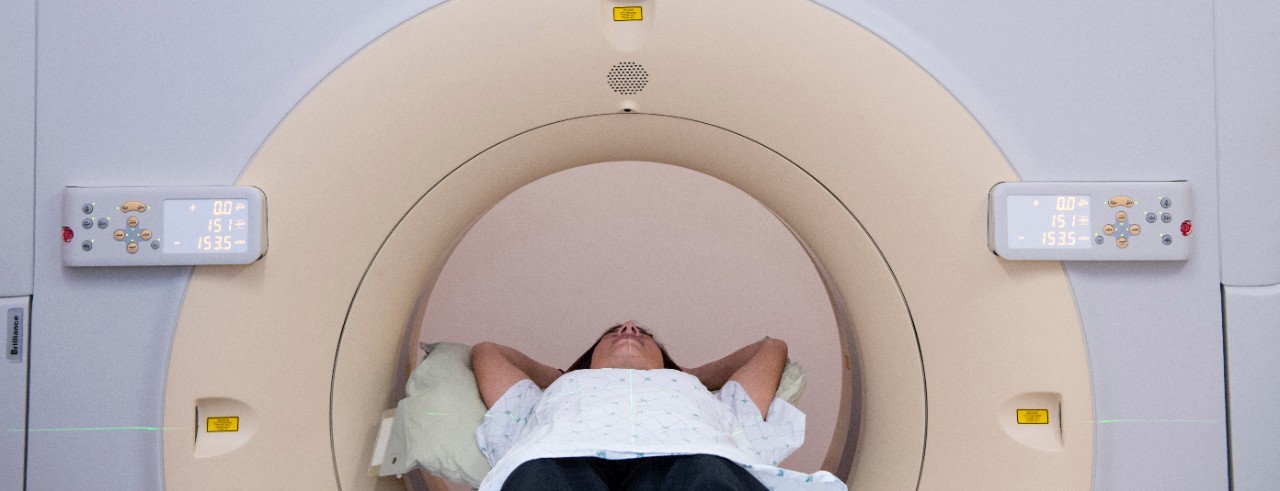
UC Cancer Center uses AI to enhance early lung cancer detection
UC expert featured in Local 12 report
Local 12 highlighted how artificial intelligence technology (AI) is helping University of Cincinnati Cancer Center experts improve early detection of lung cancer, potentially saving lives by identifying suspicious findings sooner.
"It's like looking for a different star in a night sky full of stars," said Sangita Kapur, MD, adjunct associate professor and section chief of cardiopulmonary radiology in the Department of Radiology in UC's College of Medicine and a UC Health radiologist.
The AI software "cleans up" CT scan images, making it easier to identify potential lung nodules that could be cancerous.
"So what remains? Just the funny looking stars," Kapur explained.
The AI system not only speeds up the results but also increases the likelihood of detecting early signs of cancer in at-risk individuals.
Read or watch the Local 12 report.
Featured photo of a person in a CT machine. Photo/Colleen Kelley/UC Marketing + Brand.
Screening can save lives
The United States Preventive Services Task Force recommends annual screening for lung cancer with low-dose computed tomography (LDCT) in adults aged 50-80 who have a 20 pack year smoking history and currently smoke or have quit within the past 15 years.
A pack year is calculated by multiplying the number of packs of cigarettes smoked per day by the number of years they have smoked, with one pack year equivalent to smoking one pack of cigarettes per day for one year or two packs per day for six months. A 20 pack year history would mean smoking one pack a day for 20 years.
Interested in learning more about the University of Cincinnati Cancer Center? Keep up to date by signing up for communications and newsletters based on your specific interests. Sign up for Cancer Center communications.
Related Stories
UC Cancer Center uses AI to enhance early lung cancer detection
November 20, 2024
Local 12 highlighted how artificial intelligence technology is helping University of Cincinnati Cancer Center experts improve early detection of lung cancer, potentially saving lives by identifying suspicious findings sooner.
Experts recommend earlier screening as breast cancer rates rise in younger women
November 8, 2024
The University of Cincinnati's Ann Brown, MD, was featured in a WLWT story discussing updated recommendations for women to begin screening for breast cancer at age 40.
AI tool to guide UC medical students through reflective practice
September 5, 2024
At the University of Cincinnati College of Medicine, artificial intelligence is being used to teach the next generation of physicians and enhance the quality of care they provide.
